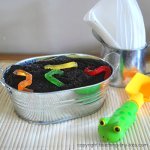Can Reading Make Children Smarter?
by Jim Yang
(Vancouver, BC. Canada)

Can Reading Make Children Smarter?
By: Jim Yang
Exactly what is the relationship between reading and intelligence? Does high reading volume help make kids smarter? Or is it just that smarter children tend to read more? This is a bit of a chicken and egg question and begs the question of "which comes first?" It is beyond a shadow of doubt that reading is an exercise that requires serious mental effort, whereby the reader is engaged in a complex mental process of deciphering squiggly lines to eventually reading and comprehending the meaning of what was just read.
For the learned adult, this may seem like such a natural, effortless process, but for young children, or poor readers, they will experience great difficulties in breaking this grapheme (written text) to phoneme (spoken sounds) code.
Reading, after all, is an intellectually intensive exercise!
The vocabulary of an individual is acquired through language exposure, rather than direct teaching, and researchers have indicated that an individual's vocabulary comes more from reading volume than oral language - meaning that we learn more words from reading than from speaking.
In the report titled "What Reading Does for the Mind" by Cunningham and Stanovich, the researchers postulated that "reading volume is a very powerful predictor of vocabulary and knowledge differences." They went on to say that reading volume is an independent source of cognitive differences. Their studies have found that reading volume contributes significantly to the development of verbal intelligence, where reading directly affects development in vocabulary, general knowledge, spelling, and verbal fluency. They went so far as to state that "reading volume facilitates growth in comprehension ability", and that "reading a lot can even help to compensate for modest levels of cognitive ability". 1
With that in mind, regardless of whether reading makes children smarter or smart children simply read more, the important takeaway here is that the more you read, the more knowledge you acquire and the better comprehension abilities you develop along with a greatly enriched vocabulary.
So, indeed, reading does help make you smarter.
The simple act of reading, and reading often, will enable children to greatly enhance their cognitive development. Children who learn to read early on will not only read A LOT more, but simply being able to read at a young age opens up an entire new world to them. Being able to read enhances their understanding of the world around them and opens up entire new opportunities.
There's a common misconception that it's not possible or extremely difficult to teach young children to read effectively. While there are whole language programs that teach through the memorization of sight words, this is not the proper method of learning to read. This method teaches children to look at words as a "whole", and the child never really learns to properly "decode" and read the written text. The proper methods of teaching children to read is through the combination of helping them develop phonemic awareness along with phonics instructions, where the child learns the text-to-sound code, which enables the development of fast, fluent, and accurate reading abilities.
Our phonics website (http://www.readingbyphonics.com) is an amazing free resource loaded with wonderful articles, tips, learning activities, and printable phonics worksheets that will help you teach your child to read.
Footnotes:
1. What Reading Does for the Mind, Journal of Direct Instruction, pp 137-149
Anne E. Cunningham, Keith E. Stanovich






